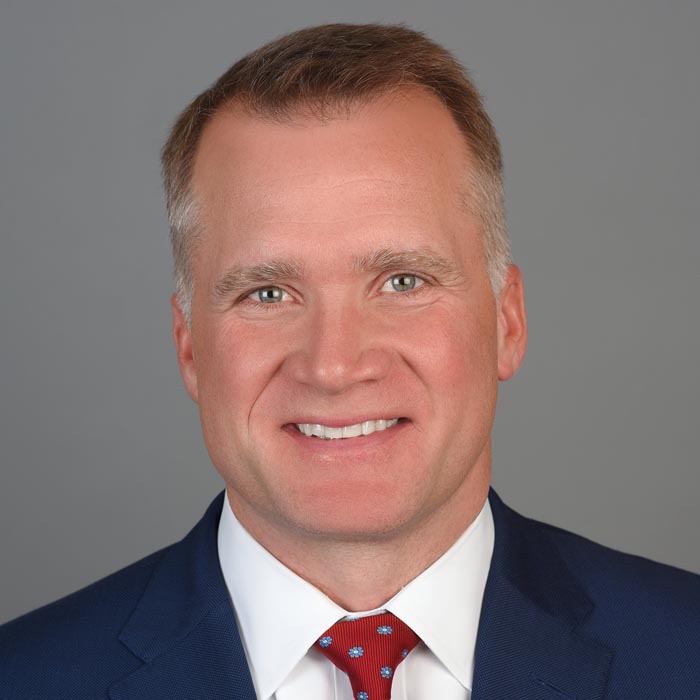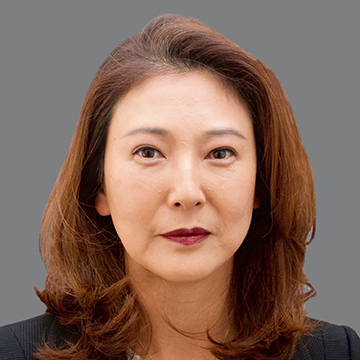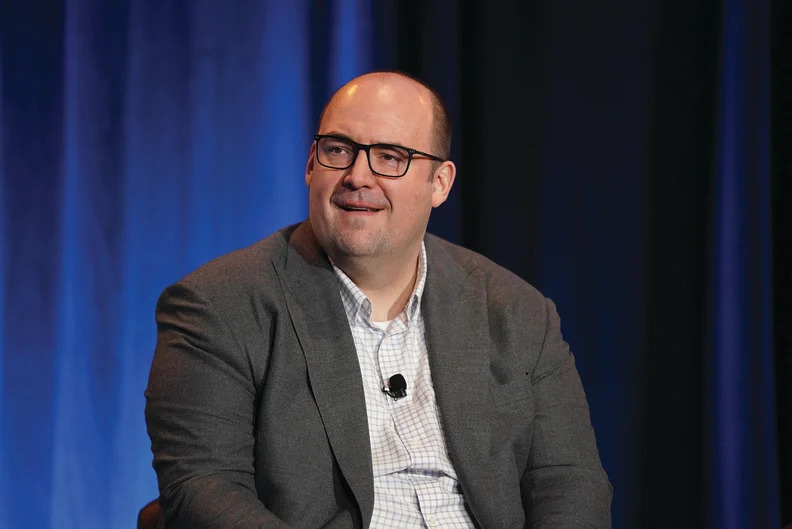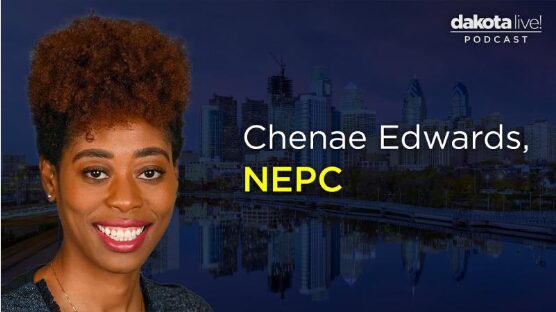Pensions & Investments: Demand Growing, but Searching and Hiring Not Necessarily Easier
NEPC’s Steve Charlton was quoted in a recent Pensions & Investments article which focuses on the recent popularity of OCIOs and the challenges institutions are now facing logistically when transitioning from their current solution to an OCIO. View the article on Pensions & Investments’ site here.
The growing popularity of OCIOs is making it easier for asset owners to access the right providers, but sources are split over whether the search and hiring process is getting easier for institutions.
. . .
TIFF Advisory, a subsidiary of TIFF Investment Management, had $8.3 billion in outsourced AUM as of March 31, up 6.4% from a year prior.
But Steve Charlton, Boston-based head of client solutions and partner at NEPC LLC, countered that the hiring process is not getting easier.
“The growth of third-party evaluation firms as the stewards of OCIO searches has required the OCIO industry to invest in additional resources and capabilities to answer more in-depth questions coming from TPEs,” he said in an email. “TPEs generally take a deeper dive during the due-diligence process relative to asset owner-driven RFPs, so the hiring process is not getting easier in the OCIO space.”
NEPC reported $61.5 billion in outsourced AUM as of March 31, slightly below its $61.7 billion figure a year prior.
Click here to continue reading the full Pensions & Investments article.
Pensions & Investments: Participant Interaction Minimizes Losses
NEPC’s Emma O’Brien was quoted in a recent Pensions & Investments article which focuses on Defined Contribution trends despite last year’s market meltdown. View the article on Pensions & Investments’ site here.
Despite last year’s equity and fixed-income rout, DC participants and sponsors take long-term view.
. . .
Last year’s market meltdown didn’t derail certain DC trends and didn’t trigger new ones, said Emma O’Brien, the Boston-based senior consultant for the NEPC LLC defined contribution team.
Clients maintained their long-term perspective, Ms. O’Brien said, adding that the industry doesn’t make quick changes.
“What will drive changes is target-date funds” at the expense of core menu options, she said.
. . .
Ms. O’Brien said there were “no significant trends in outflows” from DC plans last year. In 2023, some clients will review their investment structure, a typical client response.
“We’ve heard limited feedback from plan sponsors that participants are asking for change in lineups, and that’s driven by the fact that our clients generally have well-structured investment menus that offer core menu options that span the risk spectrum,” she said. “Participants have the option to be conservative, aggressive, or somewhere in between based on their own goals or their market views.”
Click here to continue reading the full Pensions & Investments article.
FIN News: NEPC Names New Public Funds Practice Head
Margaret Belmondo was recently announced as NEPC’s new Public Funds practice head. View the article on FIN News’ site here.
New public funds practice head first joined the firm in 2016 and was named partner in 2020.
. . .
Margaret Belmondo, partner at investment consultant NEPC, will head the firm’s public funds practice effective July 1, according to live video of today’s Howard County (Md.) Retirement Plan board meeting.
“We promised you, we are not changing [consultants]. I know when you make these types of announcements these are questions we get and the answer is no,” Kevin Leonard, partner and current head of the public funds practice, told the board.
FIN News: 5 Questions With NEPC Senior Consultant Rose Dean
Rose Dean of NEPC was recently interviewed by FIN News for their “5 Questions” series. She shared insights on her move to NEPC, her previous experiences, her investment outlook, and more. View the interview on FIN News’ site here.
Rose Dean joined investment consulting firm NEPC as a senior consultant this April after previously serving as a managing director with Wilshire.
. . .
When asked about her favorite part about her new role at NEPC, Rose answered, “I think any job is about people. I have met a lot of great people at NEPC and having come from a smaller firm, it is exciting to join a bigger team and learn from everyone’s experiences. It is also exciting to see the extent of resources available to consultants here at NEPC. It makes my role that much easier and allows me to be creative in providing solutions to clients.
Emerging Manager Monthly: NEPC Enhances DEI Rating System As Diverse Manager Usage Grows
NEPC’s Nedelina Petkova was featured in the June issue of Emerging Manager Monthly which focuses on our new Diversity, Equity, and Inclusion rating system for investment managers. View the article on Emerging Manager Monthly’s site here.
Investment consultant NEPC has incorporated a new Diversity, Equity, and Inclusion rating system for investment managers as part of its efforts to move the needle.
. . .
“We think [this is] another way for us to push the industry forward and really fundamentally believe that diversity of the investment teams allows for better decision-making and outcomes… that’s exactly what we think our role is as consultants and as investors,” said Nina Petkova.
. . .
“This isn’t just an exercise in us looking at the demographic of the employee base and assigning a score. We are doing a deep dive on evaluating DEI efforts at our managers, both on a firm level and also on a strategy level. We’re focusing on diversity stats, both only across the entire employee base through EEO1s, but also on the leadership team and the investment teams. We’re also measuring the firms’ progress in evaluating if they have the right mechanisms to measure their own progress. We’re assessing the resources that they have at the firm dedicated to diversity efforts. And lastly, we’re looking at their engagement, both inside the organization and outside of the walls of the firm, including their diverse supplier policies and brokerage relationships. And so, like I said, I believe this will fundamentally change the way in which clients utilize DE&I to ultimately make more informed decisions,” she said.
Click here to continue reading the full Emerging Manager Monthly article.
The Wall Street Journal: Treasury Yields Rise Ahead Of Expected Fed Pause
Ahead of the conclusion of June’s Fed meeting and the release of the latest CPI report, NEPC’s Head of Asset Allocation, Phillip Nelson, spoke with The Wall Street Journal about the long-term outlook around consumer price increases and the impact that could have on treasury yields. View the article on The Wall Street Journal’s site here.
Treasury yields bounce back from early declines as the Fed is expected to keep rates unchanged tomorrow after ten consecutive increases. May consumer price data this morning supported the markets’ predominant view that the hiking cycle could take a break this month with a possible final uptick in July. BNP Paribas’ economists say in a note that “persistent stickiness in the core will keep more hawkish Fed officials committed to additional policy tightening in July.” The 10-year yield rises 0.074 percentage point to 3.838% and the two-year gains 0.104 pp to 4.694%, in both cases the highest level since early March.
. . .
The 10-year Treasury yield could move above 4%, NEPC’s Phillip Nelson says. He thinks it is going to take some time for consumer price increases to slow down to a pace the Fed finds satisfactory. Until then, policy rates will remain high, pushing Treasury yields higher as markets adjust. Nelson sees the 10-year “somewhere close to the 4% range.” For most of this year, the benchmark has traded between 3.3% and 4.1% and is at 3.8% today. “Eventually, the long end of the Treasury market has to adjust to higher inflation expectations and so we can see 10-year, 30-year start moving north of 4% and that would be appropriate.”
Click here to continue reading the full Wall Street Journal article.
Pensions & Investments: Social Security's Woes Highlight Need for Holistic Plan
NEPC’s Bill Ryan was featured in a recent Pensions & Investments article which focuses on the uncertain future of Social Security and what plan sponsors can do to prepare participants. View the article on Pensions & Investments’ site here.
Given Social Security’s uncertain future, defined contribution executives say that it’s important for plan sponsors to offer participants holistic retirement planning and encourage additional savings.
. . .
A reduction in Social Security benefits would lead to an increased strain on the defined contribution system, according to Bill Ryan, Chicago-based Partner and Head of Defined Contribution Solutions at NEPC LLC.
In the case of lower benefits, many individuals would need to rely more on their 401(k) plan for retirement income, he said. To do so means that “it’s going to put more pressure on the 401(k) balance, draw down faster, and you could see it depleting sooner,” Mr. Ryan said.
Mr. Ryan called it a “compound effect: Social Security reduces; more money comes out of the 401(k) plan (and) runs out quicker. And so, assuming returns are constant for everyone, the only way to start planning for this is to incrementally save more to backstop that.”
. . .
NEPC’s Mr. Ryan said Social Security needs to be discussed more within the retirement industry, as well, since it “tends not to be (at) the forefront of the participant communications.”
“I think Social Security should get more attention (from) consultants and plan sponsors, especially in light of the attention towards annuities,” Mr. Ryan said. “Social Security is an annuity, and it’s a lower-cost annuity. So it’d be unfortunate if that wealth management strategy was compromised.”
. . .
If Social Security benefits are reduced, “it’s not going to change a person’s need to pay their mortgage, pay their car loan, (or) pay whatever they were planning,” Mr. Ryan said. “That (loss) is going to have to come from other forms of savings like DC, and if we’re not planning for that,” it could cause people budgetary issues.
That’s why Mr. Ryan said “there should be more guidance to encourage faster escalation of savings rates or maybe tax credits for higher matches.”
. . .
Mr. Ryan said delaying the age at which someone takes Social Security is still valuable, but it’s a hard sell.
“If someone were to take it later, it puts less of a strain on the trust,” he said. “And there’s an absolutely incremental value that the participant will actually be able to get more from it, but it’s hard to make that human trade,” and give up immediate money for possible money in the future, especially given the system’s uncertain future.
Click here to continue reading the full Pensions & Investments article.
Dakota Live! Podcast: Thinking Boldly with Chenae Edwards of NEPC
NEPC’s Chenae Edwards was interviewed by Dakota Live! in their recent podcast to discuss the NEPC manager research process, how clients are maneuvering through the current market environment, and her experience in working with non-profit institutions. Listen to the podcast on Spotify or Apple Podcast.
“Chenae Edwards, Partner with NEPC, LLC shares her investment consulting experience as she discusses the NEPC manager research process, how clients are maneuvering through the current market environment, and her experience in working with non-profit institutions. NEPC is one of the industry’s largest independent, full-service investment consulting firms, serving more than 400 clients with over $1.4 trillion in assets under advisement. With over 350 employees and over 400 clients across channel, NEPC’s five distinct practices and eight regional offices make it one of the more important consultants in the industry. Learn more about what has made NEPC so successful over the years, and how Chenae and her colleagues research and select their investment management partners.”
PlanSponsor: Robust Retirement Tiers Can Help Keep Participants In-Plan
NEPC’s Bill Ryan was quoted in a recent PlanSponsor article to discuss retirement plans and what can be done to support the goals of retirees and plan sponsors alike. View the article on PlanSponsor’s site here.
Workplace retirement plans may need to change their name—these days, more plan sponsors are looking for ways to serve their former employees even after they’ve quit working.
. . .
“Bill Ryan, partner and head of defined contribution solutions at NEPC, says most plans already have the basic tools—the ability to make systematic withdrawals and investment options that can support near-term goals—necessary to serve their retirees.
“The retirement tier is an overwhelming topic that doesn’t have to be overwhelming,” Ryan explains. “We are closer to the answer than further away. Most plans have the building blocks for a retirement income tier; they just have to build on them.””
. . .
“[Scott] Mayland says plan sponsors considering adding annuities must evaluate them with a fiduciary’s eye, making sure they understand all the features and the costs. Ryan says a simple way for plans to get started with annuities might be through a window that allows participants to select from a range of providers. For plan sponsors looking to add an annuity to the investment menu, a straightforward, plain-vanilla fixed annuity is likely the best approach for the widest demographic, he adds.”
. . .
“The expansion of in-plan Roth accounts that will occur as additional SECURE 2.0 provisions go into place may further strengthen the case for a retirement tier.
“There is going to be an unintentional benefit from that long-term, because this group won’t need to take RMDs, and they may leave their money in longer,” Ryan says.”
Read the full article on Plan Sponsor’s website here.
Pensions & Investments: Institutional Investors Flush with Infrastructure Opportunities
NEPC’s Matthew Ritter was quoted in a recent Pensions & Investments article to discuss the growing interest institutional investors have had in infrastructure and renewable energy over the past decade. View the article on Pensions & Investments’ site here.
Institutional investor interest in infrastructure has grown steadily in recent years, but with more opportunities in renewable energy coupled with economic incentives borne out of the Inflation Reduction Act, more institutions are steering dollars to the asset class in a trend experts and managers expect to continue.
. . .
Infrastructure interest among institutional investors has grown steadily over the last five or 10 years, said Matthew Ritter, Boston-based partner and head of real assets investments at investment consultant NEPC LLC.
Now, more institutional investors are replacing their energy private equity exposure, or at least new commitment dollars, with private infrastructure because of the new and appealing offerings in the asset class, Mr. Ritter said.
“As the infrastructure market has continued to grow and evolve, not just in terms of the number of managers and strategies, but really the breadth of strategies out there, there have been more attractive opportunities regardless of what your objectives are,” Mr. Ritter said.
There are plenty of reasons for institutional investors to consider investing in infrastructure today, such as yields, diversification or inflation hedging, he added.
With inflation elevated, Mr. Ritter said the focus on infrastructure and real assets broadly has increased, but NEPC and its clients take a long-term investing approach, “So investors are not typically adjusting their target allocations or dramatically increasing or decreasing investment volumes based on these sort of shorter-term market trends.”
Click here to continue reading the full Pensions & Investments article.









